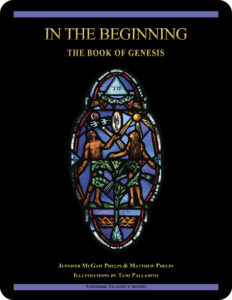 In the Beginning:
In the Beginning:
The Book of Genesis
Lesson 25 Joseph’s Brothers Travel to Egypt
the book of Genesis 42:1—43:34
Revised Standard Version Catholic Edition (RSVCE)*
New American Bible Revised Edition (NABRE)*
Catechism of the Catholic Church
ex libris (in our library)
cross references in the book of Genesis
next lesson: Joseph Discloses His Identity to His Brothers
This material coordinates with Lesson 25 on pages 135–140 in the study book In the Beginning: The Book of Genesis.
“And God saw everything that he had made, and behold, it was very good. And there was evening and there was morning, a sixth day. Thus the heavens and the earth were finished, and all the host of them. And on the seventh day God finished his work which he had done, and he rested on the seventh day from all his work which he had done.”—the book of Genesis 1:31—2:2
welcome to our in-depth study of the book of Genesis
We invite interested groups and individuals to check out the sample first lesson from this 28-lesson  Turning to God’s Word Catholic Bible study.
Turning to God’s Word Catholic Bible study.  These online study pages link to our free lesson video overviews as well as to a list of cross references in the biblical text. Other study aids include maps, charts, illustrations, additional commentary, and prayers based on the primary Scripture in each lesson. In the Beginning: The Book of Genesis has been granted an imprimatur and can be purchased from our website shop. If you have a Bible-study question or comment, click on one of the “ask us your question” or “what do you think” buttons on any online study page.
These online study pages link to our free lesson video overviews as well as to a list of cross references in the biblical text. Other study aids include maps, charts, illustrations, additional commentary, and prayers based on the primary Scripture in each lesson. In the Beginning: The Book of Genesis has been granted an imprimatur and can be purchased from our website shop. If you have a Bible-study question or comment, click on one of the “ask us your question” or “what do you think” buttons on any online study page.
open with prayer
It’s always wise to begin any Bible study with prayer, whether reading the Scriptures alone or meeting with others in a discussion study group. You can pray using your own words or use one of the opening prayers on our website. We especially like the following:
Lord Jesus, you promised to send your Holy Spirit
to teach us all things.
As we read and study your word today,
allow it to touch our hearts and change our lives. Amen.
let’s review—the book of Genesis 40:1—41:57
Lesson 24 Joseph Interprets Dreams describes the event that frees Joseph from prison where he’s been falsely held following accusations by Potiphar’s wife that Joseph assaulted her. It turns out that Joseph’s ability to interpret dreams is a God-given gift that remains with him even when he’s an imprisoned slave in Egypt. He correctly interprets the dreams of two fellow prisoners, one of whom is restored to the service of Pharaoh and the other of whom is hanged. Later the prisoner who was restored to Pharaoh’s service recommends Joseph when Pharaoh has dreams that no one in his court is able to interpret. Joseph foretells that Pharaoh’s dreams indicate a severe drought lasting seven years—and Joseph explains how the Egyptians can prepare to survive. Pharaoh heeds Joseph’s advice, putting him in charge of drought preparations and making Joseph second in command in Egypt.
the plot thickens
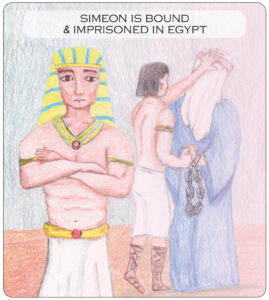 The forty-second and forty-third chapters of the book of Genesis describe circumstances under which Joseph encounters his brothers who sold him into slavery many years earlier. The narrative is compelling, leading readers to speculate about how Joseph is going to deal with his deceitful siblings. It’s significant that at this point Joseph appears all-powerful and all-knowing, at least in terms of earthly power and knowledge. In this instance, Joseph is a type of God himself, and, like God, Joseph doesn’t immediately disclose all of his plans. Click on the illustration (right) to enlarge it. The original illustration by Turning to God’s Word co-founder Tami Palladino is on page 139 in the study book In the Beginning: The Book of Genesis.
The forty-second and forty-third chapters of the book of Genesis describe circumstances under which Joseph encounters his brothers who sold him into slavery many years earlier. The narrative is compelling, leading readers to speculate about how Joseph is going to deal with his deceitful siblings. It’s significant that at this point Joseph appears all-powerful and all-knowing, at least in terms of earthly power and knowledge. In this instance, Joseph is a type of God himself, and, like God, Joseph doesn’t immediately disclose all of his plans. Click on the illustration (right) to enlarge it. The original illustration by Turning to God’s Word co-founder Tami Palladino is on page 139 in the study book In the Beginning: The Book of Genesis.
 Benjamin holds a special place in his father’s heart (21:04)
Benjamin holds a special place in his father’s heart (21:04)
In the video overview for Lesson 25, “Joseph’s Brothers Travel to Egypt,” Turning to  God’s Word author Matthew Phelps discusses two things behind Jacob’s fondness for his youngest son Benjamin—1) Benjamin is one of the two sons born to Jacob’s favorite wife Rachel, and 2) Jacob believes that the other son born to Rachel, Joseph, has died. Jacob’s desire to protect Benjamin prompts him not to send Benjamin along with his remaining 10 sons—none of whom were born to Rachel—to Egypt for food. Meanwhile, Joseph has risen to a position of power in Egypt, and his brothers end up
God’s Word author Matthew Phelps discusses two things behind Jacob’s fondness for his youngest son Benjamin—1) Benjamin is one of the two sons born to Jacob’s favorite wife Rachel, and 2) Jacob believes that the other son born to Rachel, Joseph, has died. Jacob’s desire to protect Benjamin prompts him not to send Benjamin along with his remaining 10 sons—none of whom were born to Rachel—to Egypt for food. Meanwhile, Joseph has risen to a position of power in Egypt, and his brothers end up  approaching him to buy food. They fail to recognize Joseph, but he recognizes them and begins an elaborate deception to learn the brothers’ current attitude toward him. The videos for this study are being redone and will be posted as they become available. The original videos for Lessons 4 through 28 will remain accessible until then.
approaching him to buy food. They fail to recognize Joseph, but he recognizes them and begins an elaborate deception to learn the brothers’ current attitude toward him. The videos for this study are being redone and will be posted as they become available. The original videos for Lessons 4 through 28 will remain accessible until then.
The Scripture ranges for the videos being redone to accompany this Catholic Bible study from Turning to God’s Word will match the Scripture ranges for the sets of questions in the study book In the Beginning: The Book of Genesis. Viewers will be able to follow along as author Matthew Phelps discusses Lesson 25, “Joseph’s Brothers Travel to Egypt,” on pages 135–140 in the study book.
interpretation continues to play a big role
Joseph’s story so far has focused attention on the interpretation of dreams. At this point, however, the dreams that Joseph had as a lad at home begin to be fulfilled. The narrative looks at what Joseph knows and what his brothers don’t know. This theme is reinforced in the book of Genesis 42:23, which records Joseph using an interpreter to speak with his brothers, even though Joseph understands their native language. The brothers naturally assume that Joseph is an Egyptian, having no reason to suspect that the brother they sold into slavery could have risen to such a high position in a foreign land.
WHAT DO YOU THINK about Reuben & Judah?
Jacob’s sons Reuben, Simeon, and Judah are important at this stage of Joseph’s story. You can learn more about these three brothers in “Reuben, Simeon & Judah” on page 140 in the study book In the Beginning: The Book of Genesis.
 ? In the book of Genesis 42:37, Reuben volunteers to protect Benjamin on a trip to Egypt to obtain more food. As a guarantee of Benjamin’s safety, Reuben offers Jacob the opportunity to slay his own two sons if Benjamin doesn’t return. What do you think has prompted Reuben to make such a rash suggestion?
? In the book of Genesis 42:37, Reuben volunteers to protect Benjamin on a trip to Egypt to obtain more food. As a guarantee of Benjamin’s safety, Reuben offers Jacob the opportunity to slay his own two sons if Benjamin doesn’t return. What do you think has prompted Reuben to make such a rash suggestion?
? Do you think that Reuben really is willing for his own sons to die?
? Consider whether Reuben is motivated to make such an offer because he’s confident of his ability to protect Benjamin, or whether Reuben might think Jacob incapable of taking the lives of his grandsons.
? What’s different about the offer made by Judah, which is recorded in the book of Genesis 43:8–10?
a lingering question
Is it Jacob or is it Israel? What might be the purpose of an increased use of the name Israel to refer to the patriarch Jacob at this point in the narrative?
 favorite—you could look it up in our archives
favorite—you could look it up in our archives
After Jacob accepts the report that Joseph is dead, Benjamin, the baby of the family, becomes his father’s favorite. To learn more about the meaning of the word “favorite,” you can read Lost in Translation, an online column in which Turning to God’s Word author Matthew Phelps helps readers connect with ideas expressed in the original languages of the Scriptures. New Lost in Translation entries are posted on Mondays, and past entries are archived on our website. Contact us if you’d like to receive Lost in Translation by email every week.
t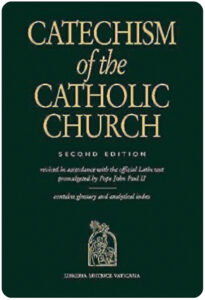 he best Catholic commentary about Scripture
he best Catholic commentary about Scripture
To find out more about how Church teaching is supported by Scripture passages in In the Beginning: The Book of Genesis, check out the Index of Citations in the Catechism of the Catholic Church. Links (Revised Standard Version Catholic Edition [RSVCE*]) to the primary Scripture passages in the lesson and relevant paragraphs in the Catechism are provided here. Not every passage in the biblical text for this Catholic study is referenced in a Catechism paragraph, however, including the passage in this lesson from the book of Genesis 42:1—43:34.
to learn more, read more Scripture
If you’re having difficulty with a particular passage of Scripture, it can be helpful to read the relevant  cross references—but looking these up can take time. To make that easier, we’ve compiled the cross references from the Revised Standard Version Second Catholic Edition (RSV2CE)—the translation that we reprint in our study books. That list can be found at the top of every online study page, and it includes links to cross references in the primary biblical text for In the Beginning: The Book of Genesis.
cross references—but looking these up can take time. To make that easier, we’ve compiled the cross references from the Revised Standard Version Second Catholic Edition (RSV2CE)—the translation that we reprint in our study books. That list can be found at the top of every online study page, and it includes links to cross references in the primary biblical text for In the Beginning: The Book of Genesis.
don’t forget about our indexes & extra online material

 If you’re trying to locate information about a specific Scripture passage, you can look it up in the index at the back of the study book or sample lesson. If you want to find a particular commentary, you can look up its title in the topics index. To learn more about another book of the Bible for which there’s a Turning to God’s Word study, visit the online study directories to read the commentaries and watch any accompanying videos. Finally, if you have a question or would like to make a comment about any of our studies, you can use one of the “ask us your question” or “what do you think” buttons to email our authors.
If you’re trying to locate information about a specific Scripture passage, you can look it up in the index at the back of the study book or sample lesson. If you want to find a particular commentary, you can look up its title in the topics index. To learn more about another book of the Bible for which there’s a Turning to God’s Word study, visit the online study directories to read the commentaries and watch any accompanying videos. Finally, if you have a question or would like to make a comment about any of our studies, you can use one of the “ask us your question” or “what do you think” buttons to email our authors.
ex libris—Church documents & books about religious topics
Link to magisterial documents referred to in our Bible studies at ex libris—magisterial documents.  This listing includes significant recent encyclicals as well as a number of historical Church documents. Recommended books related to Scripture study can be found at ex libris—main bookshelf.
This listing includes significant recent encyclicals as well as a number of historical Church documents. Recommended books related to Scripture study can be found at ex libris—main bookshelf.
wondering how to pronounce some of these words?
The following link is to a reading from the New International Version (NIV) Bible. To listen, open the link and click on the audio icon above the printed text. Although not taken from the translations used in our study materials, the NIV reading provides an audio guide to pronunciation of words in this lesson’s primary biblical text. A close online version of the translation of the Bible used in Catholic liturgy in the United States as well as an audio guide for daily Mass readings for the current month can be found on the website of the United States Conference of Catholic Bishops (USCCB).
the book of Genesis 42:1—43:34 (NIV)
 close with Bible-based prayer related to this lesson
close with Bible-based prayer related to this lesson
Many of our Catholic study groups like to conclude their discussions with a prayer based on the scriptural focus of their lesson, and some participants include Scripture-specific prayer in their individual study. If you’re uncomfortable composing your own Bible-based prayers, you can follow our four easy steps. If you prefer, you can use the following prayer based on this lesson’s text from the book of Genesis.
O God, you know all things.
Grant us the knowledge to see your hand
at work in all the events of our lives,
and the patience to wait until you choose
to disclose your plans for us.
We ask this in the name of Jesus Christ,
whom we always can call upon
for wisdom and understanding. Amen.
Lesson 26 Joseph Discloses His Identity to His Brothers—the book of Genesis 44:1—45:28
Lesson 24 Joseph Interprets Dreams—the book of Genesis 40:1—41:57
you also may like our study of the Gospel According to John
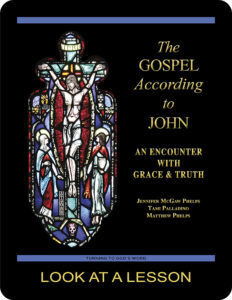 The Gospel According to John: An Encounter with Grace & Truth, a 25-lesson Catholic Bible study with an imprimatur, examines the Fourth Gospel’s view of Jesus Christ as the Son of God, with special emphasis on the institution of the sacraments of the Church as the means by which Christians are purified and made holy. This recently revised study includes maps and additional commentary, and takes a closer look at the way in which Jesus relates to individual men and women. Click on the book’s cover to view a sample lesson.
The Gospel According to John: An Encounter with Grace & Truth, a 25-lesson Catholic Bible study with an imprimatur, examines the Fourth Gospel’s view of Jesus Christ as the Son of God, with special emphasis on the institution of the sacraments of the Church as the means by which Christians are purified and made holy. This recently revised study includes maps and additional commentary, and takes a closer look at the way in which Jesus relates to individual men and women. Click on the book’s cover to view a sample lesson.
start a Turning to God’s Word Bible study
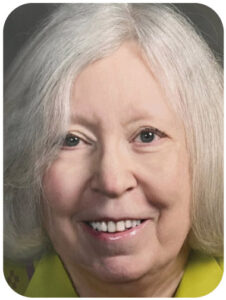 Thank you for your interest in our study In the Beginning: The Book of Genesis.
Thank you for your interest in our study In the Beginning: The Book of Genesis.  Information about beginning a Turning to God’s Word Catholic Bible study can be found at start a Bible study. Tami, Matthew, and I are available to answer questions and offer support. Contact us if you’d like to start a Turning to God’s Word study or have your schedule listed with other TtGW study groups on our website. —Jennifer
Information about beginning a Turning to God’s Word Catholic Bible study can be found at start a Bible study. Tami, Matthew, and I are available to answer questions and offer support. Contact us if you’d like to start a Turning to God’s Word study or have your schedule listed with other TtGW study groups on our website. —Jennifer
*There are seven deuterocanonical books in the Old Testament—the Books of Tobit, Judith, Wisdom, Sirach, Baruch, and First and Second Maccabees, as well as some passages in the Books of Esther and Daniel. Protestants usually refer to these works as “apocryphal,” a word that means “outside the (Protestant) canon” because they’re excluded from most Protestant Bibles. The word “deuterocanonical” means “second canon”; Catholics use that word to refer to any section of the Catholic Old Testament for which there are no extant, or existing, Hebrew manuscripts. All of the deuterocanonical books appear in the Septuagint, the earliest remaining versions of which date to the 1st century B.C. This Greek translation of the Old Testament was in common use by Jews at the time of Jesus—but the same books aren’t found in existing Hebrew manuscripts, which aren’t as old as the oldest version of the Septuagint. Learn more by reading How Do Catholic & Protestant Bibles Differ?
Turning to God’s Word printed Bible studies use the 2006 Revised Standard Version Second Catholic Edition (RSV2CE) translation for all Scripture references except those to the Psalms, which are taken from The Abbey Psalms and Canticles, prepared by the Benedictine monks of Conception Abbey and published in 2020 by the United States Conference of Catholic Bishops (USCCB). All Scripture links for the online study pages for In the Beginning: The Book of Genesis are to the 1966 Revised Standard Version Catholic Edition (RSVCE) translation. The New International Version (NIV) audio recordings follow the same chapter and verse numbering as the RSV Catholic translations, but the NIV translation doesn’t include the deuterocanonical books and passages.
The 1966 RSVCE uses archaic pronouns and verb forms such as “thee,” “thou,” “didst” in the Psalms and in direct quotations attributed to God. The 2006 RSV2CE replaces those with more accessible English. The few significant translation changes in the RSV2CE include rendering almah as “virgin” in the Book of Isaiah 7:14 and restoring the term “begotten” in the Gospel According to John 3:16.
Numbering varies for some passages in this Bible study. Turning to God’s Word studies (print and digital) follow the numbering in the Revised Standard Version Catholic translations (RSV2CE and RSVCE). Discrepancies in the New American Bible Revised Edition (NABRE) are noted in the Index of Scripture Citations in the study book and the online sample.
 You can learn more about the Psalms by viewing a sample lesson from the Turning to God’s Word Catholic Bible study Sing a New Psalm: Communicating with God Through the Prayers of the Church—Volume I: Lauds & Vespers. The second part of that study, Sing a New Psalm: Communicating with God Through the Prayers of the Church—Volume II: Vigils, Day Prayer & Compline, is scheduled for publication in 2025. Some verse numbers may vary in different translations of the Psalms.
You can learn more about the Psalms by viewing a sample lesson from the Turning to God’s Word Catholic Bible study Sing a New Psalm: Communicating with God Through the Prayers of the Church—Volume I: Lauds & Vespers. The second part of that study, Sing a New Psalm: Communicating with God Through the Prayers of the Church—Volume II: Vigils, Day Prayer & Compline, is scheduled for publication in 2025. Some verse numbers may vary in different translations of the Psalms.
